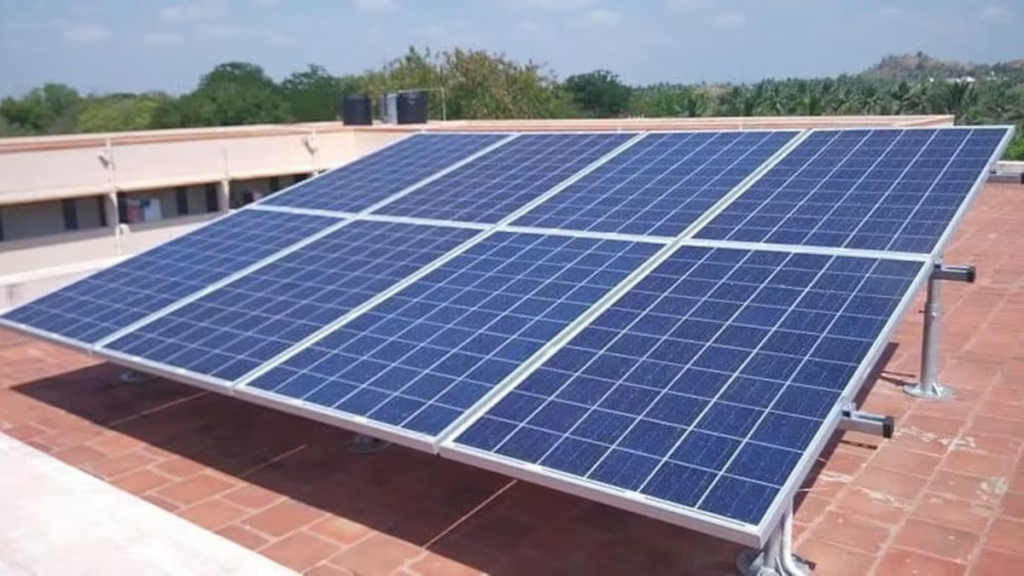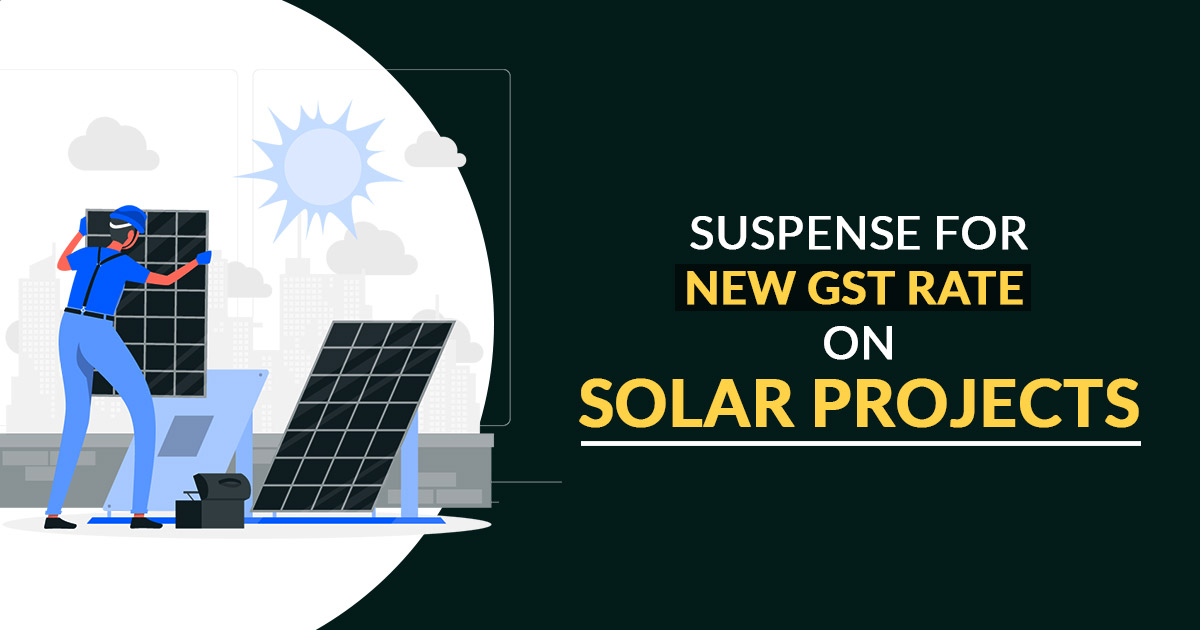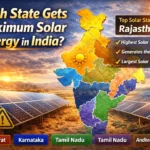Introduction
Anúncios
Solar energy is becoming popular in India. Many families and businesses are choosing it to save money on electricity bills. But did you know that GST (Goods and Services Tax) has a big role in deciding the price of solar panels?

In this article, we explain the impact of GST on solar panel prices in India in simple words. We also guide you on how it affects your decision to go solar in 2025.
What is GST and How It Applies to Solar Products?
GST is a tax added to goods and services in India. It has replaced older indirect taxes. Solar panel systems are also taxed under GST, but the rates depend on the parts of the system.
GST Rates on Solar Components (as of 2025)
| Component | GST Rate |
|---|---|
| Solar Panels | 12% |
| Solar Inverters | 12% |
| Solar Batteries | 18% |
| Mounting Structures | 18% |
| Installation Services | 18% |
Anúncios
When you buy a full rooftop solar system, a composite tax rate applies — 70% of the project is taxed at 12% (goods) and 30% at 18% (services).
Also Read Step-by-Step Guide to Installing Rooftop Solar Panels in India
How GST Has Changed Solar Panel Prices
Before GST, most solar components had low or no tax. Now, after GST, the price has gone up by 5-8%. Here’s how that looks:
Example: 1 kW Residential Solar System
- Before GST: ₹65,000 (approx.)
- After GST: ₹70,000 to ₹72,000
For larger systems, this price increase becomes even more noticeable.
Anúncios
Effect on Different Groups in India
1. Homeowners
- Higher Initial Investment: A typical home solar system now costs a bit more.
- But Long-Term Savings: Electricity bills come down, and you still recover your cost in 5–6 years.
- Subsidies Help: Government rooftop solar subsidies lower this burden.
2. Businesses and Industries
- Input Tax Credit (ITC): Businesses can get GST credit on purchases, which helps reduce tax liabilities.
- Accelerated Depreciation: Businesses can write off solar investment faster to save tax under income tax laws.
Government Support to Reduce the Burden
Despite the higher tax, the government offers some support to promote solar energy in India.
1. Rooftop Solar Subsidy
Under the PM Surya Ghar Muft Bijli Yojana and other state schemes, homeowners can get 30%–60% subsidies on solar panel installations. This reduces the final cost even after GST.
2. Domestic Production Encouraged
To reduce dependence on imported panels, the government added customs duty on imports. This supports Indian solar manufacturers and encourages local job creation.
Tips for Buying Solar Panels in 2025
- Always Compare Multiple Quotes
Don’t settle for the first price. Ask different vendors for quotations. - Check for Applicable Subsidies
Visit the official MNRE or state nodal agency websites for subsidy information. - Ask About GST Split
Make sure your installer clearly explains how GST is applied in your invoice. - Invest for the Long Term
Even with GST, solar is a great investment that gives tax-free savings for 20+ years.
Frequently Asked Questions (FAQs)
Q1: What is the GST rate on solar panels in 2025?
A: The GST rate is 12% on solar panels and 18% on related components like batteries and structures.
Q2: Has GST made solar more expensive?
A: Yes, the cost has increased slightly due to GST. However, subsidies and long-term savings still make it affordable.
Q3: Can I claim GST credit if I install solar panels at home?
A: No, only businesses registered under GST can claim Input Tax Credit. Homeowners cannot.
Q4: Are government subsidies still available despite GST?
A: Yes, central and state subsidies are still available, which balance out the extra GST cost.
Q5: What is the GST structure on full solar systems?
A: For complete systems, 70% is taxed at 12% (goods), and 30% is taxed at 18% (services).
Conclusion
The impact of GST on solar panel prices in India is real, but it shouldn’t discourage you from switching to solar. While you pay slightly more upfront, you still benefit from reduced electricity bills, cleaner energy, and government support. Make smart choices by understanding GST, claiming available subsidies, and comparing quotes.
Author- Ayush












2 thoughts on “What is the Impact of GST on Solar Panel Prices Prices? 2025”